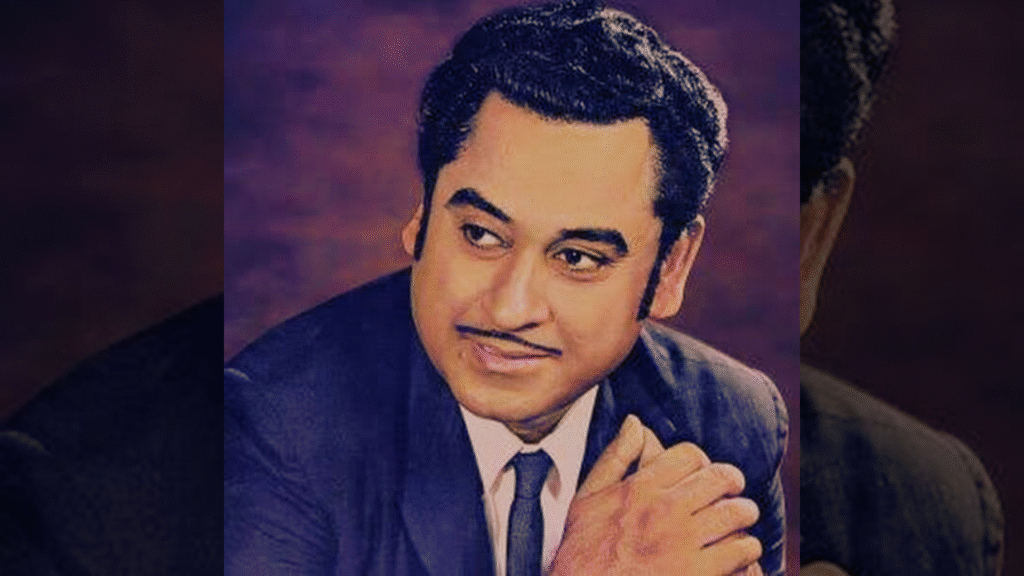Kishore Kumar: The Evergreen Voice of Indian Cinema

Kishore Kumar, born Abhas Kumar Ganguly on 4 August 1929 in Khandwa, Madhya Pradesh, was one of the most celebrated playback singers, actors, composers, lyricists, and filmmakers in Indian cinema. Known for his versatility, unique voice texture, and unparalleled ability to adapt his singing to suit any mood, Kishore Kumar remains a timeless icon in the world of music. Even decades after his passing, his songs continue to resonate with music lovers across generations.
Early Life and Family Background
Kishore Kumar was the youngest of four siblings born to Kunjalal Ganguly (a lawyer) and Gouri Devi. His elder brothers, Ashok Kumar and Anoop Kumar, were already established in the film industry. Initially, Kishore had no formal training in classical music, but his natural flair for singing and mimicry made him stand out. Inspired by the legendary singer K. L. Saigal, Kishore started imitating his style before developing his own unique voice.
Career in the Film Industry
As a Playback Singer
Kishore Kumar’s breakthrough as a playback singer came with the song “Marne Ki Duayen Kyun Mangu” (Ziddi, 1948), composed by Khemchand Prakash. However, his career took a turning point in the late 1960s when R. D. Burman and S. D. Burman began giving him major singing assignments.
His biggest break came with “Aradhana” (1969), where songs like “Mere Sapno Ki Rani”, “Roop Tera Mastana”, and “Kora Kagaz Tha Yeh Man Mera” established him as the most sought-after playback singer of his era. From then on, Kishore Kumar became the voice of superstars like Rajesh Khanna, Amitabh Bachchan, Dev Anand, Dharmendra, and many others.
Acting Career
Before establishing himself as a singer, Kishore Kumar also acted in numerous films. He was known for his comic timing and eccentric style in movies like:
Chalti Ka Naam Gaadi (1958)
Padosan (1968)
Half Ticket (1962)
Door Gagan Ki Chhaon Mein (1964) – a film he also directed and produced.
Composer and Filmmaker
Kishore Kumar composed music for several films and even wrote lyrics on occasion. As a filmmaker, his work reflected his experimental and non-conventional style. Though not all of his films were commercially successful, they showcased his creativity and passion for art.
Personal Life
Kishore Kumar’s personal life was as colorful and unconventional as his career. He was married four times:
Ruma Guha Thakurta (singer-actress)
Madhubala (legendary actress)
Yogeeta Bali (actress)
Leena Chandavarkar (actress)
Despite his eccentric and often reclusive lifestyle, Kishore was known to be a deeply sensitive and emotional person.
Awards and Achievements
Won the Filmfare Award for Best Male Playback Singer 8 times.
Received the Lata Mangeshkar Award by the Madhya Pradesh Government.
Honored with the “Greatest Playback Singer of India” title by various polls and media outlets.
Some of his evergreen songs include:
Pal Pal Dil Ke Paas
Mere Mehboob Qayamat Hogi
Zindagi Ek Safar Hai Suhana
Chingari Koi Bhadke
O Mere Dil Ke Chain
Ek Ajnabee Haseena Se
Ye Shaam Mastani
Death and Legacy
Kishore Kumar passed away on 13 October 1987 due to a heart attack, leaving a void in the music industry that can never be filled. Even today, his voice dominates radio channels, playlists, and live concerts. His songs remain fresh, soulful, and relatable, making him truly “immortal through music.”
Kishore Kumar was not just a singer—he was an institution of music and entertainment. His ability to express every emotion through his voice, from romance to melancholy to fun and mischief, makes him a legend whose influence will last forever. His songs continue to inspire musicians and bring joy to millions, cementing his place as one of the greatest artists in Indian history.
